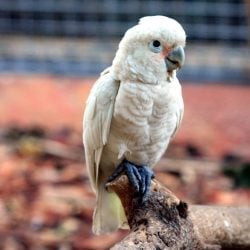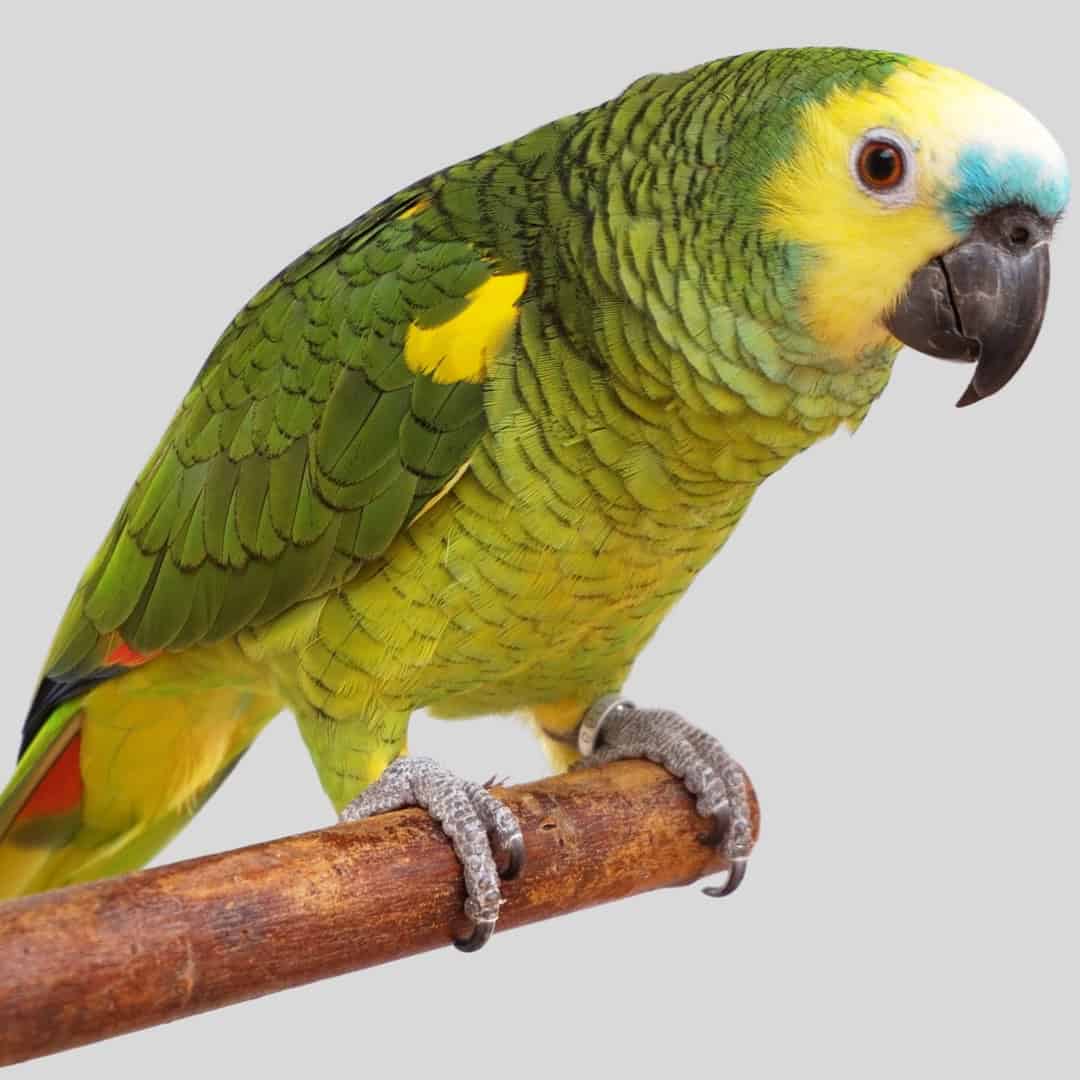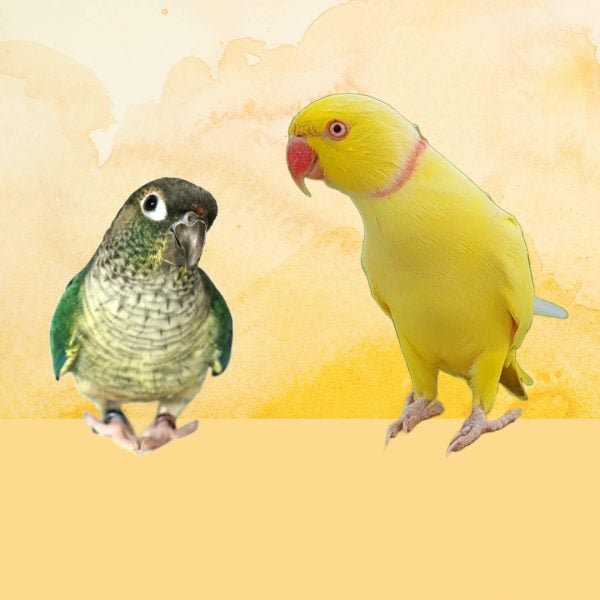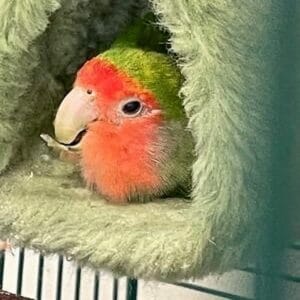Last Updated on by Mitch Rezman
Henie L. would like to know if Avi Cakes are good for birds who have had Fatty Liver Disease
For a little over a year, I have fed my Conures only fruits, veggies, and pellets.
The previous winter, I was stupid and simply fed them seeds.
My question is I have Avi-Cakes here that I feed my Parakeets.
Is it OK to feed any Avi-Cake to my two Conures?
They are looking good but still have some dull feathers.
They would, I know, enjoy a little Avi-Cake. Thanks, Henie L.
Dear Henie
Very sorry to hear about your conures ill health.
It is not uncommon for new bird owners to not know any better and use a seed-only diet as rarely a bird seller will go into detail about proper diet, housing, care leaving the new owner to flounder on their own until hopefully, they figure it out.
Now that you have changed their diet for the better, yes, you can give them Lafeber Avi-cakes.
Avi-cakes are not seeds they are grain and (50%) pellet-based.
They will enjoy a bit daily.
We give our own small parrots, Chili the Quaker and Keto an African Ringneck a small piece (not a whole square) just before bed, and they then are content to be closed up for the night.
Regards,
Catherine
Author Profile

Latest entries
 Bird & Parrot CareJune 20, 2025Understanding the Best Way to Use Prevue Pets Mimic Me Voice Trainer
Bird & Parrot CareJune 20, 2025Understanding the Best Way to Use Prevue Pets Mimic Me Voice Trainer Bird BehaviorJune 6, 2025How Do I Keep My Parrot From Dumping His Food Every Day?
Bird BehaviorJune 6, 2025How Do I Keep My Parrot From Dumping His Food Every Day? Birds & LightingMay 16, 2025I Am Seeking Clarity About Lighting for My Birds Cage
Birds & LightingMay 16, 2025I Am Seeking Clarity About Lighting for My Birds Cage Bird RescueApril 29, 2025How Do We Re-Home a 17 yr Goffin Cockatoo?
Bird RescueApril 29, 2025How Do We Re-Home a 17 yr Goffin Cockatoo?




Michael Mattei
19 Jan 2025As long as we’re talking diet, maybe you have a few suggestions to fine tune Kula’s plate of fresh she gets first thing every day. It usually includes blueberries, strawberries, papaya, asparagus, red & gold beets, celery, apple, green cabbage, carrots, mango, kale, bok choy, broccoli stalk(she doesn’t like the florets)and a few small pieces of grass finished beef, wild caught salmon or cheese. Some fruits are seasonal like dragon fruit or poms. I’ll rotate spinach, arugula, bell peppers, peas, green beans and yams.
I supplement her seed, LAvian, which she’ll get later in the day with a few whole nuts like hazelnut, walnuts, pecans and peanuts. Oh and her fav pistachios.
Thoughts? She’s almost 20 and hasn’t been sick a day in her life.
Mitch Rezman
19 Jan 2025Hi Michael,
I’m starting with a breakdown of the nutrition offered by each food your lucky bird is getting
Here are the nutritional properties of the foods you listed, tailored for your cockatoo and general pet bird care:
Fruits
1. Blueberries
Rich in: Vitamin C, Vitamin K, manganese, and antioxidants.
Benefits: Supports immune health and reduces oxidative stress.
Caution: Limit quantity due to natural sugar content.
2. Strawberries
Rich in: Vitamin C, manganese, folate, and antioxidants.
Benefits: Good for skin and tissue health.
Caution: Wash thoroughly due to pesticide residue.
3. Papaya
Rich in: Vitamin A, Vitamin C, folate, and fiber.
Benefits: Aids digestion and boosts immune health.
Caution: Avoid seeds as they may contain traces of toxins.
4. Apple (no seeds)
Rich in: Vitamin C, fiber, and water.
Benefits: Hydration and gut health.
Caution: Avoid seeds—they contain cyanogenic glycosides.
5. Mango
Rich in: Vitamin A, Vitamin C, Vitamin E, and fiber.
Benefits: Supports vision, immunity, and skin health.
6. Dragon Fruit (Seasonal)
Rich in: Vitamin C, magnesium, and antioxidants.
Benefits: Aids hydration and digestion.
7. Pomegranates (Seasonal)
Rich in: Vitamin C, Vitamin K, and antioxidants.
Benefits: Supports heart health and reduces inflammation.
Vegetables
1. Asparagus
Rich in: Vitamin K, Vitamin A, and folate.
Benefits: Promotes bone health and digestion.
2. Beets (Red & Gold)
Rich in: Folate, manganese, potassium, and nitrates.
Benefits: Supports cardiovascular health.
3. Celery
Rich in: Vitamin K, Vitamin C, and water.
Benefits: Excellent for hydration and low in calories.
4. Green Cabbage
Rich in: Vitamin K, Vitamin C, and fiber.
Benefits: Supports digestion and tissue repair.
5. Carrots
Rich in: Vitamin A (beta carotene), Vitamin K, and fiber.
Benefits: Promotes vision and healthy skin.
6. Kale
Rich in: Vitamin A, Vitamin K, Vitamin C, calcium, and iron.
Benefits: Excellent for bone and feather health.
7. Bok Choy
Rich in: Vitamin A, Vitamin C, calcium, and potassium.
Benefits: Great for hydration and muscle function.
8. Broccoli Stalks (not florets)
Rich in: Vitamin C, Vitamin A, and fiber.
Benefits: Digestive health and antioxidants.
9. Spinach (Rotated)
Rich in: Vitamin K, Vitamin A, folate, and iron.
Caution: Contains oxalates, which may interfere with calcium absorption; rotate to prevent issues.
10. Arugula (Rotated)
Rich in: Vitamin K, calcium, and potassium.
Benefits: Supports bone and cardiovascular health.
11. Bell Peppers (Rotated)
Rich in: Vitamin C, Vitamin A, and antioxidants.
Benefits: Improves immunity and vision.
12. Peas (Rotated)
Rich in: Vitamin C, protein, and fiber.
Benefits: Supports muscle and digestive health.
13. Green Beans (Rotated)
Rich in: Vitamin K, Vitamin C, and manganese.
Benefits: Bone health and digestion.
14. Yams (Rotated)
Rich in: Vitamin A, Vitamin B6, and fiber.
Benefits: Energy and immune support.
Animal Proteins (Occasionally)
1. Grass-Finished Beef
Rich in: Protein, iron, zinc, and Vitamin B12.
Benefits: Muscle health and energy.
Caution: Offer sparingly to avoid excess fat or cholesterol.
2. Wild-Caught Salmon
Rich in: Omega-3 fatty acids, Vitamin D, and protein.
Benefits: Supports brain and feather health.
Caution: Ensure it’s fully cooked and boneless.
3. Cheese (Occasionally)
Rich in: Calcium, Vitamin D, and fat.
Caution: Birds are lactose-intolerant, so offer minimal amounts.
Nutritional Highlights of Rotational Feeding:
Rotating seasonal foods like dragon fruit, spinach, arugula, bell peppers, peas, green beans, and yams provides variety, prevents nutrient imbalances, and avoids dependency on any one food.
Would you like this formatted into a printable table or guide?
Some of the basic admonitions to bring forward
Blueberries – Caution: Limit quantity due to natural sugar content.
Strawberries – Caution: Wash thoroughly due to pesticide residue.
Papaya Caution – Avoid seeds as they may contain traces of toxins.
Apples Caution – Avoid seeds—they contain cyanogenic glycosides.
That’s all common sense.
Anyone who knows me knows I’m a “data guy” at heart.
Data and facts guide me.
So when I see “Animal Proteins (Occasionally)” I see a red flag.
Your pet bird has roughly 6000 to 7000 feathers.
Those feathers are grown from amino acids which are derived from protein.
I don’t know if your bird is getting enough protein.
Do You have lighting over the cage?
If so or if not shine a bright light on your bird to determine if his or her feather radiates color or if the color seems “flat” – only you can tell.
A full blood workup with an avian vet would be helpful to ensure your nutritional strategy meets your bird’s requirements.
Best
MitchR